Head-To-Head: HP Chromebook 13 Vs. Google Chromebook Pixel
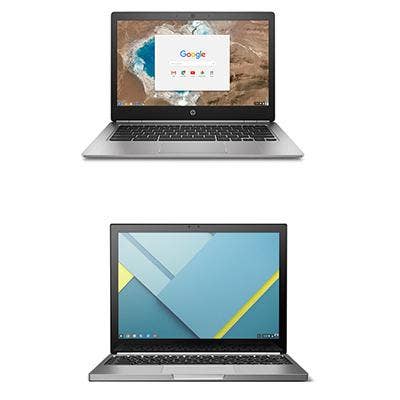
HP Jumps Into Google's 'Premium' Space With New Chromebook
The idea of a "premium" Chromebook is still a novel concept. The theme of the devices -- which run Google's Chrome OS but are made by numerous manufacturers -- has been simplicity and an affordable price. There are a couple of dozen versions of Chromebooks out there right now, and most run between $150 and $300. The one exception has been Google's Chromebook Pixel, a higher-priced device with much higher performance than the typical Chromebook. The most recent version of the Pixel, however, debuted more than a year ago.
Now there's a second offering in the "premium" Chromebook category, the HP Chromebook 13, which aims to hook both business and consumer users. In particular, HP is touting the utility of the device for the mobile workforce. (And Google had a hand in developing the device.) So how does the HP Chromebook 13 stack up against Google's Chromebook Pixel? Here's a rundown of how the two devices compare on specs and price.
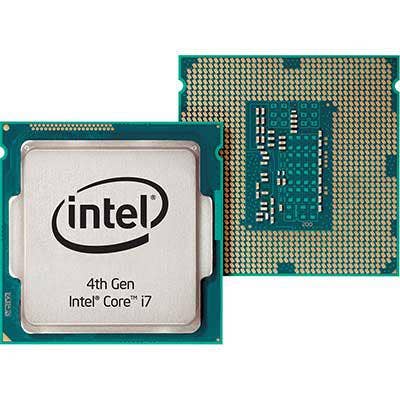
Processor And Battery Life
The biggest spec news for the HP Chromebook 13 is about the processor. The device is the first Chromebook that's using Intel's sixth-generation Core M processor. That'll provide the sort of horsepower for workers that need to use multiple apps and browser windows at once. Along with speed, the Core M processor also promises another essential for the mobile workforce -- long battery life. Up to 11.5 hours on a charge, to be specific. "It's a purpose-built CPU designed for very mobile devices," said Jon Layish, president of Red Barn Technology Group, an Intel partner based in Binghamton, N.Y. The emphasis, he said, is on striking a balance "between mobile performance and energy efficiency."
By contrast, Google's Chromebook Pixel is still more powerful in the processor department, with Intel's top-of-the-line Core i7 processor (a lower-end version, with a Core i5 processor, is no longer available). For those looking to get a Chromebook that'll be used for graphics-intensive applications, the Pixel will be the better bet over the HP Chromebook 13 (the Pixel has also got Intel HD 5500 Graphics vs. the lower-end HD Graphics 515 from Intel in the HP Chromebook 13).
Bottom line: The processor in the HP Chromebook 13 "is in no way a replacement" for the Core i7 of the Chromebook Pixel, Layish said. The battery life of the Pixel is also slightly superior at up to 12 hours on a charge.
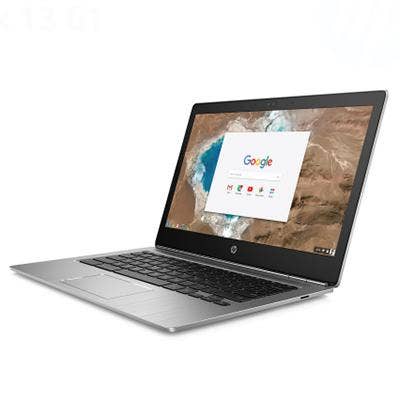
Weight And Thickness
The HP Chromebook 13's emphasis on appealing to the mobile workforce also plays out in the dimensions and weight involved. The device is notably thinner and lighter than the Pixel:
-- The HP Chromebook 13 is 12.9mm thick compared with the Pixel, which is 15.3mm thick.
-- The HP Chromebook 13 weighs 2.86 pounds compared with the 3.3-pound Pixel.
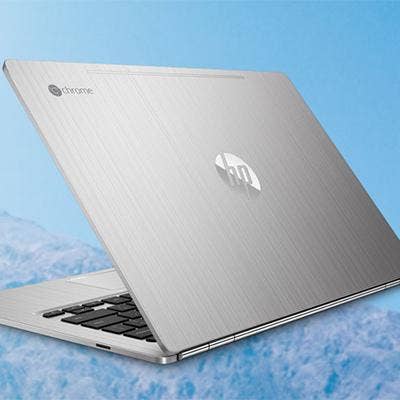
Memory and Storage
Mobility and performance for workers also depend heavily on memory, of course. Both devices come with up to 16 GB of memory. But storage-wise, the Pixel offers a higher maximum amount, with the device configurable to include 64 GB of storage. The maximum amount available for the HP Chromebook 13 is 32 GB.
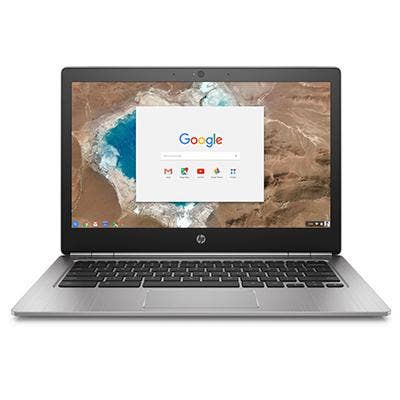
Display
The HP Chromebook 13 is, appropriately, outfitted with a 13.3-inch diagonal display. The Pixel, on the other hand, is actually a bit smaller in the display category -- 12.85 inches diagonal.
Also of interest is the resolution comparison—the HP Chromebook 13 comes with a 3,200 x 1,800 IPS display, a higher resolution than the Pixel's 2,560 x 1,700. HP particularly contends that the display is ideal for using collaboration apps such as Google Hangouts.

Hardware And Ports
Both devices come with an aluminum chassis and sport two USB Type-C ports. (Worth noting: The USB-C ports on the HP Chromebook 13 allow the device to be used with HP's Elite USB-C Docking Station, making it "the first docking solution for a Chromebook," according to HP.) The Pixel comes with two USB 3.0 ports as well, while the HP Chromebook 13 has one USB-A port.

Price
Here is probably the biggest differentiator for the HP Chromebook 13 -- it starts at $499. Previously, Google's Chromebook Pixel had started at twice that amount -- $999 -- for the lower-end version. But Google (via its Google Store, which is the only place to buy the Pixel) now says the $999, 8-GB RAM version is no longer available. That just leaves the higher-end, 16-GB RAM version, which starts at $1,299. Of course, a more-comparable version of the HP Chromebook 13 is going to run more. An HP Chromebook 13 with 16 GB of RAM starts at $1,029, according to Chromebook reseller Promevo. The HP Chromebook 13 starts shipping this month, according to an HP spokesperson.